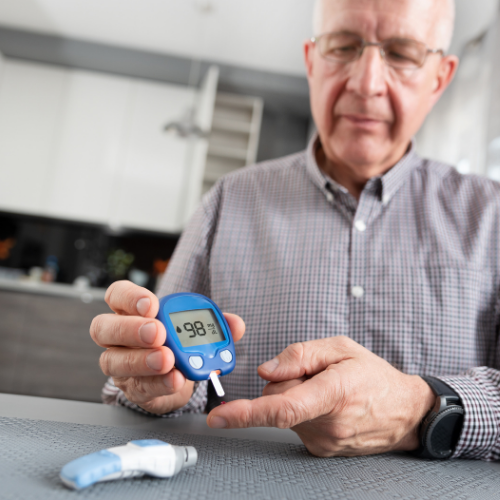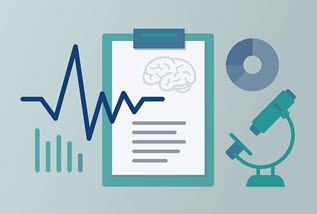
RISK FACTORS
Who’s at Risk?
There are several biological and behavioral factors correlated with increased risk of Alzheimer's. Testing and lifestyle changes can help to lower your risks and symptoms.
Age
Advanced age is the greatest known risk factor for Alzheimer's disease. After 65, the risk of Alzheimer's doubles every five years. About one-third of all people 85 and older may have Alzheimer's disease.
Scientists are rapidly learning how age-related changes in the brain negatively affect neurons and other types of brain cells, contributing to Alzheimer’s damage. These age-related changes include atrophy (shrinking) of certain parts of the brain, inflammation, vascular damage, production of unstable molecules called "free radicals," and breakdown of energy production within cells.

Family History and Genes

Another strong risk factor for Alzheimer's and dementia is family history. People with a first-degree relative, such as a parent or sibling, with Alzheimer’s are at higher risk. The risk increases if more than one family member has the disease, but does not necessarily guarantee that you will have it.
Tests to identify genetic risk of Alzheimer’s have been developed only recently. One genetic factor is the E4 variant of the apolipoprotein E gene (APOE), which can be identified with a cheek-swab test. Approximately 25% to 30% of the population carries an APOE E4 gene, but not everyone who carries it develops the disease.
Curious about your own risk?
Find out in minutes with our free risk assessment.
Traumatic Brain Injury
Studies show that a severe head injury sustained at any age is linked with a greater risk of Alzheimer's disease and also might accelerate the age of onset. Moderate or multiple mild head injuries produced weaker but still identifiable links. Further, evidence suggests that risk for Alzheimer’s or other forms of dementia might be greatest within six months to two years of the injury, but that risks of developing the disease remain higher even decades later.

Other Health Factors

Research has shown that the same risk factors associated with heart disease may also increase the risk of Alzheimer's disease. These include:
-
Obesity
-
High blood pressure
-
High cholesterol
-
Diabetes
-
Stroke
-
Smoking or exposure to secondhand smoke
-
Air pollution









